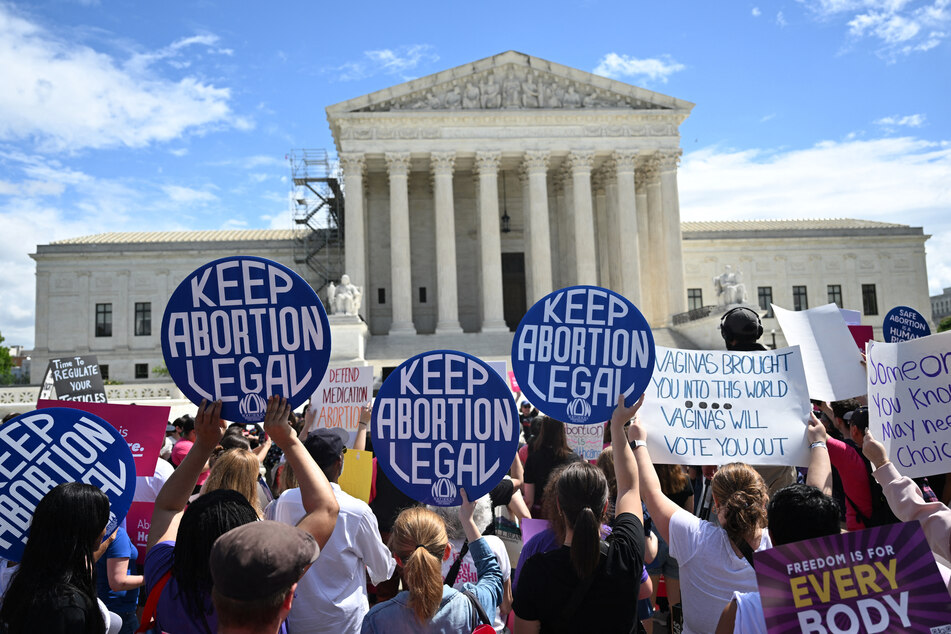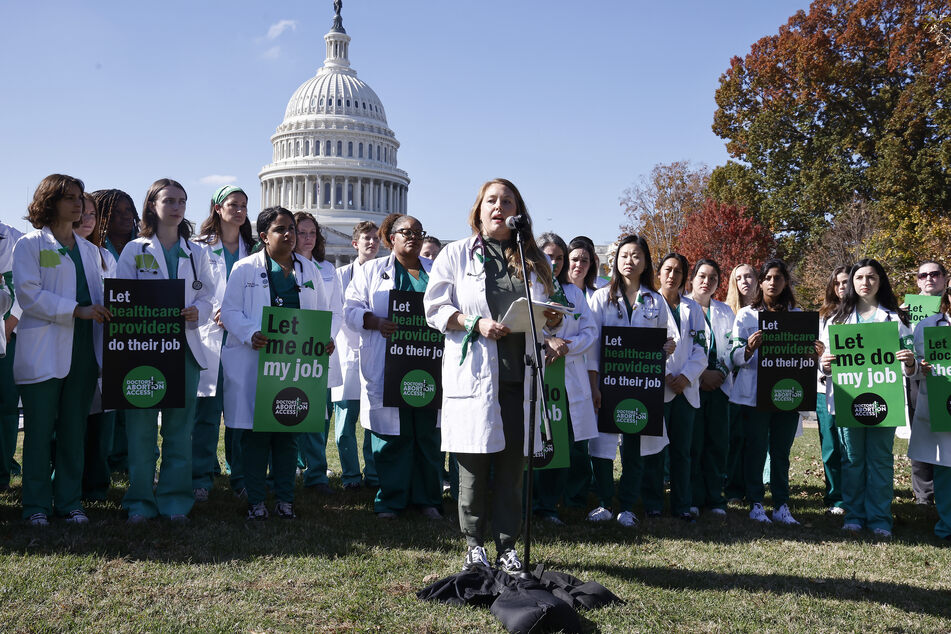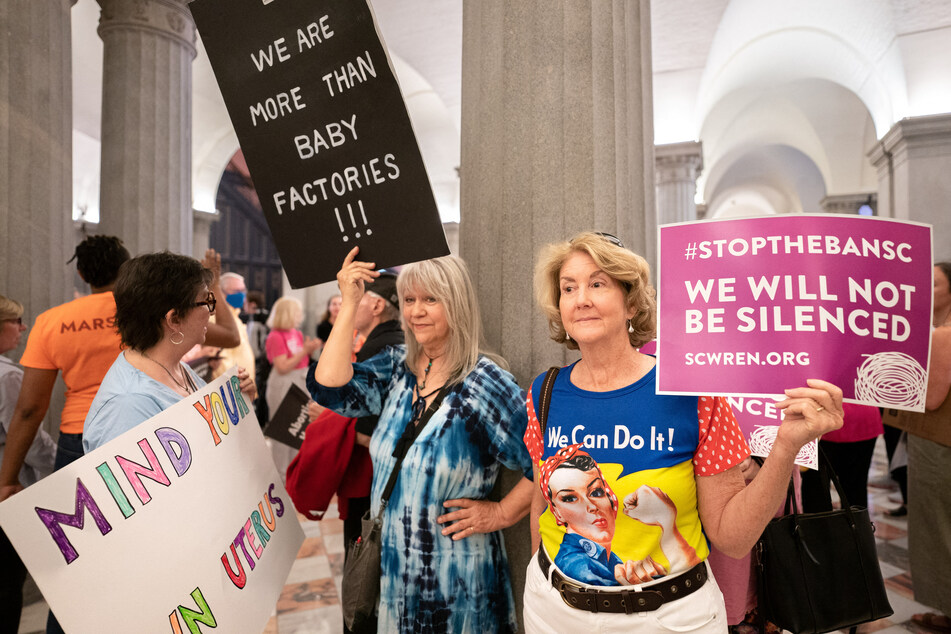The state of abortion one year after the Supreme Court overturned Roe v. Wade
Washington DC- The Supreme Court's historic about-face on abortion one year ago has created a nightmare for those seeking the procedure, a legal morass for the courts, and a challenge for the Republican Party.

On June 24, 2022, the Supreme Court reshaped by former President Donald Trump overturned the landmark 1973 Roe v. Wade decision that guaranteed a constitutional right to abortion and left it up to each state to decide.
After the ruling in Dobbs v. Jackson Women's Health Organization, nine states immediately banned abortion, with so-called "trigger" laws designed to take effect once Roe no longer applied.
A year later, some 20 states, mostly in the South and Midwest, have prohibited abortion outright or severely restricted access, while others, like California and Vermont, have moved to protect it.
The impact, in terms of sheer numbers, remains limited.
Getting abortion care is a challenge

According to a study called #WeCount Report by the Society of Family Planning, the average number of abortions per month fell after Dobbs. The number of monthly abortions nationwide between July 2022 and March 2023 was 79,031, which is 3.3% fewer than in April and May 2022, when an average of 81,730 abortions a month were performed.
"Many people are still getting the abortions that they need," said Ushma Upadhyay, a public health social scientist and a co-author of the study.
"It's just that they have to face great challenges to be able to get those abortions," Upadhyay told AFP.
The poorest of the poor are the most affected

The bans have forced tens of thousands to travel for abortion care. Traveling for such procedures isn't just financially challenging. Getting the time off and or explaining absences, can also be difficult. Such logistical problems can delay care, which can have negative psychological and physiological effects.
Anna Zargarian was denied an abortion in Texas and is now part of a first-of-its-kind lawsuit against the state of Texas. She recounted her harrowing experience after her water broke at 19 weeks, far too early for the fetus to survive.
She was forced to fly to Colorado for an abortion since doctors in Texas would not perform one, a trip she described as "terrifying."
"It was like Russian roulette, knowing I was at risk of infection, hemorrhaging, or going into labor at any moment," Zargarian said.
Upadhyay said it is women "who are the poorest of the poor," mostly African Americans and Hispanics, who are being forced to carry pregnancies to term. "It's disproportionately people of color who are impacted," she said.
Over the past year, a number of private groups have mobilized to help women obtain abortions but "one or two years down the line these private efforts are going to get exhausted," Upadhyay said. "It's not sustainable."
Attacks on Medication Abortion
Since the last year's ruling, medical abortions have also come under fire. Per the Guttmacher Institute, more than 53% of abortions are performed with medication. The most common medication abortion regime consists of two drugs, one of which is Mifepristone, which can be used through the first 10 weeks of pregnancy.
In April, a federal judge in Texas revoked the Food and Drug Administration's 2000 approval of mifepristone, in an unprecedented move.
The judge's decision was put on hold by the US Supreme Court, but a conservative lower court currently considering the case could uphold his ruling.
The battle is also ongoing in the political arena

Democrats, including President Joe Biden, have made abortion a key issue and it seems to have paid off in the 2022 midterm elections.
Democratic candidates performed better than expected in the midterms. In states where abortion was on the ballot, like Kansas and Kentucky, voters sent politicians a clear message. They want abortion access protected.
Republican candidates are now stuck trying to satisfy the fiercely anti-abortion religious right, a key base of support, while not alienating more moderate voters. Anti-abortion groups such as SBA Pro-Life have said they will only support a presidential candidate in 2024 who pledges to enact a nationwide abortion ban.
The Republican front-runner, Donald Trump, has yet to officially share his stance on abortion.
Majority of Americans support abortion
A recent Gallup poll shows that a growing majority of Americans support legal abortion, at least in the early months of pregnancy. Gallup has been asking Americans if abortion should be legal under any circumstances since 1975.
This year's survey showed that support for first-trimester abortions (before three months of pregnancy) is at a record high, with 69% saying it should be legal.
The same poll, however, showed that the public has also become more politically divided. Some 60% of Democrats said abortion should be legal under any circumstances, whereas only 8% of Republicans agreed.
A year after Roe vs Wade was overturned, 61% of respondents said that overturning Roe was a "bad thing." Only 38% said that this about-face on abortion was a "good thing."
Whether that will be reflected in the legislative arena remains to be seen.
Cover photo: Andrew CABALLERO-REYNOLDS / AFP
